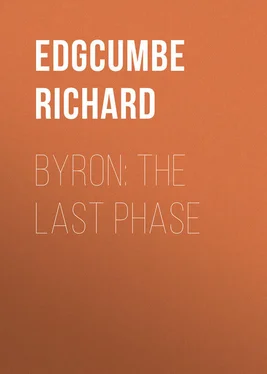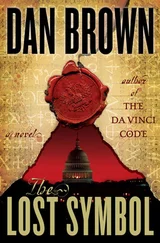Richard Edgcumbe - Byron - The Last Phase
Здесь есть возможность читать онлайн «Richard Edgcumbe - Byron - The Last Phase» — ознакомительный отрывок электронной книги совершенно бесплатно, а после прочтения отрывка купить полную версию. В некоторых случаях можно слушать аудио, скачать через торрент в формате fb2 и присутствует краткое содержание. Жанр: literature_19, Поэзия, foreign_antique, foreign_prose, foreign_poetry, Биографии и Мемуары, на английском языке. Описание произведения, (предисловие) а так же отзывы посетителей доступны на портале библиотеки ЛибКат.
- Название:Byron: The Last Phase
- Автор:
- Жанр:
- Год:неизвестен
- ISBN:нет данных
- Рейтинг книги:3 / 5. Голосов: 1
-
Избранное:Добавить в избранное
- Отзывы:
-
Ваша оценка:
- 60
- 1
- 2
- 3
- 4
- 5
Byron: The Last Phase: краткое содержание, описание и аннотация
Предлагаем к чтению аннотацию, описание, краткое содержание или предисловие (зависит от того, что написал сам автор книги «Byron: The Last Phase»). Если вы не нашли необходимую информацию о книге — напишите в комментариях, мы постараемся отыскать её.
Byron: The Last Phase — читать онлайн ознакомительный отрывок
Ниже представлен текст книги, разбитый по страницам. Система сохранения места последней прочитанной страницы, позволяет с удобством читать онлайн бесплатно книгу «Byron: The Last Phase», без необходимости каждый раз заново искать на чём Вы остановились. Поставьте закладку, и сможете в любой момент перейти на страницу, на которой закончили чтение.
Интервал:
Закладка:
Hodgson, an old friend of Byron’s, has left a record that a Bible presented to him ‘by that better angel of his life,’ his beloved sister, was among the books which Byron always kept near him. The following lines, taken from Scott, were inserted by Byron on the fly-leaf:
‘Within this awful volume lies
The Mystery of Mysteries.
Oh! happiest they of human race
To whom our God has given grace
To hear, to read, to fear, to pray,
To lift the latch, and force the way;
But better had he ne’er been born
Who reads to doubt, or reads to scorn!’ 14 14 ‘Memoir of Rev. F. Hodgson,’ vol. ii., p. 150.
During the discussions which took place, Kennedy was forced to admit that Byron was well versed in the Bible; but he maintained that prayer was necessary in order to understand its message. Byron said that, in his opinion, prayer does not consist in the act of kneeling, or of repeating certain words in a solemn manner, as devotion is the affection of the heart.
‘When I look at the marvels of the creation,’ said he, ‘I bow before the Majesty of Heaven; and when I experience the delights of life, health, and happiness, then my heart dilates in gratitude towards God for all His blessings.’
Kennedy maintained that this was not sufficient; it must be an earnest supplication for grace and humility. In Kennedy’s opinion Byron had not sufficient humility to understand the truths of the Gospel. At this time, certainly, Byron was not prepared to believe implicitly in the Divinity of Christ. He lacked the necessary faith to do so, but he did not reject the doctrine.
‘I have not the slightest desire,’ he said, ‘to reject a doctrine without having investigated it. Quite the contrary; I wish to believe, because I feel extremely unhappy in a state of uncertainty as to what I am to believe.’
He wanted proofs – as so many others have before and since – and without it conviction was impossible.
‘Byron,’ said Countess Guiccioli, ‘would never have contested absolutely the truth of any mystery, but have merely stated that, so long as the testimony of its truth was hidden in obscurity, such a mystery must be liable to be questioned.’
Byron had been brought up by his mother in very strict religious principles, and in his youth had read many theological works. He told Dr. Kennedy that he was in no sense an unbeliever who denied the Scriptures, or was content to grope in atheism, but, on the contrary, that it was his earnest wish to increase his belief, as half-convictions made him wretched. He declared that, with the best will in the world, he could not understand the Scriptures. Kennedy, on the other hand, took the Bible to be the salvation of mankind, and was strong in his condemnation of the Catholic Church. He objected to the Roman Communion as strongly as he repudiated and despised Deism and Socinianism.
Byron had at this time a decided leaning towards the Roman Communion, and, while deploring hypocrisies and superstitions, deeply respected those who believed conscientiously, whatever that belief might be. He loathed hypocrites of all kinds, and especially hypocrites in religion.
‘I do not reject the doctrines of Christianity,’ he said; ‘I only ask a few more proofs to profess them sincerely. I do not believe myself to be the vile Christian which so many assert that I am.’
Kennedy advised Byron to put aside all difficult subjects – such as the origin of sin, the fall of man, the nature of the Trinity, the doctrine of predestination, and kindred mysteries – and to study Christianity by the light of the Bible alone, which contains the only means of salvation. We give Byron’s answer in full on Dr. Kennedy’s authority:
‘You recommend what is very difficult; for how is it possible for one who is acquainted with ecclesiastical history, as well as with the writings of the most renowned theologians, with all the difficult questions which have agitated the minds of the most learned, and who sees the divisions and sects which abound in Christianity, and the bitter language which is often used by the one against the other; how is it possible, I ask, for such a one not to inquire into the nature of the doctrines which have given rise to so much discussion? One Council has pronounced against another; Popes have belied their predecessors, books have been written against other books, and sects have risen to replace other sects. The Pope has opposed the Protestants, and the Protestants the Pope. We have heard of Arianism, Socinianism, Methodism, Quakerism, and numberless other sects. Why have these existed? It is a puzzle for the brain; and does it not, after all, seem safer to say: “Let us be neutral: let those fight who will, and when they have settled which is the best religion, then shall we also begin to study it.” I like your way of thinking, in many respects; you make short work of decrees and Councils, you reject all which is not in harmony with the Scriptures. You do not admit of theological works filled with Latin and Greek, of both High and Low Church; you would even suppress many abuses which have crept into the Church, and you are right; but I question whether the Archbishop of Canterbury or the Scotch Presbyterians would consider you their ally.’
Kennedy, in reply, alluded to the differences which existed in religious opinions, and expressed regret at this, but pleaded indulgence for those sects which do not attack the fundamental doctrines of Christianity. He strongly condemned Arianism, Socinianism, and Swedenborgianism, which were anathema to him.
‘You seem to hate the Socinians greatly,’ said Byron, ‘but is this charitable? Why exclude a Socinian, who believes honestly, from any hope of salvation? Does he not also found his belief upon the Bible? It is a religion which gains ground daily. Lady Byron is much in favour with its followers. We were wont to discuss religious matters together, and many of our misunderstandings have arisen from that. Yet, on the whole, I think her religion and mine were much alike.’
Whether Byron was justified in this opinion or not may be seen from a letter which Lady Byron wrote to Mr. Crabb Robinson 15 15 ‘Diary,’ vol. iii., pp. 435, 436.
in reference to Dr. Kennedy’s book:
‘Strange as it may seem, Dr. Kennedy is most faithful where you doubt his being so. Not merely from casual expressions, but from the whole tenor of Lord Byron’s feelings, I could not but conclude he was a believer in the inspiration of the Bible, and had the gloomiest Calvinistic tenets. To that unhappy view of the relation of the creature to the Creator, I have always ascribed the misery of his life… It is enough for me to remember, that he who thinks his transgressions beyond forgiveness (and such was his own deepest feeling) has righteousness beyond that of the self-satisfied sinner; or, perhaps, of the half awakened. It was impossible for me to doubt, that, could he have been at once assured of pardon, his living faith in a moral duty and love of virtue (“I love the virtues which I cannot claim”) would have conquered every temptation. Judge, then, how I must hate the Creed which made him see God as an Avenger, not a Father. My own impressions were just the reverse, but could have little weight, and it was in vain to seek to turn his thoughts for long from that idée fixe , with which he connected his physical peculiarity as a stamp. Instead of being made happier by any apparent good, he felt convinced that every blessing would be “turned into a curse” for him. Who, possessed of such ideas, could lead a life of love and service to God or man? They must in a measure realize themselves. “The worst of it is I do believe,” he said. I, like all connected with him, was broken against the rock of Predestination.’
Читать дальшеИнтервал:
Закладка:
Похожие книги на «Byron: The Last Phase»
Представляем Вашему вниманию похожие книги на «Byron: The Last Phase» списком для выбора. Мы отобрали схожую по названию и смыслу литературу в надежде предоставить читателям больше вариантов отыскать новые, интересные, ещё непрочитанные произведения.
Обсуждение, отзывы о книге «Byron: The Last Phase» и просто собственные мнения читателей. Оставьте ваши комментарии, напишите, что Вы думаете о произведении, его смысле или главных героях. Укажите что конкретно понравилось, а что нет, и почему Вы так считаете.












